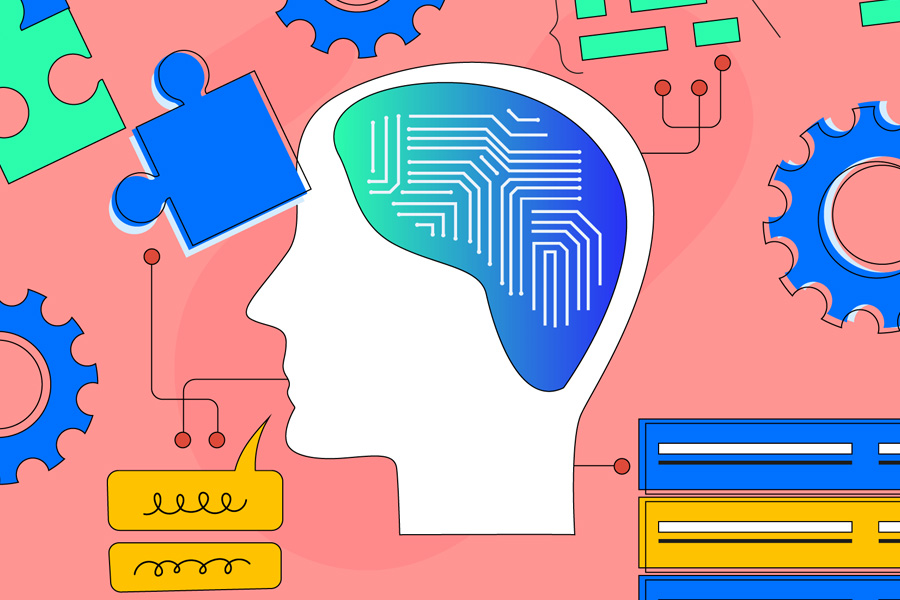Ethical AI: Ensuring Fairness and Transparency in Machine Learning Models

Image Source: onix-systems.com
From a totally information-rich and digital-tech international, Artificial Intelligence (AI) and Machine Learning (ML) are changing industrial interfaces and revolutionizing the performance of almost every zone. However, with increasingly key roles in making vital choices, ethical troubles surrounding equity and transparency have arisen with AI. A good buy of this will be had to make certain that AI neither violates societal values nor usurps the rights of an man or woman and yet remains honest. In this chapter, we look at ethical AI with a focus on equity and transparency. This provides an crucial context for all of us gaining knowledge of to be a data analytics course or similar statistics analyst guides anywhere within the global.
Understanding Ethical AI: Why It Matters
Ethical AI refers back to the accountable improvement and deployment of AI systems, which consciousness on human welfare, fairness, duty, and transparency. Ethical AI avoids biased choice-making, privacy invasions, and different terrible affects that would disproportionately affect prone agencies. For example, an AI hiring tool would possibly favor one demographic over every other due to biased education records. In the absence of moral pointers, such biases ought to maintain to perpetuate discrimination and erode public trust in AI systems.
For information analysts, the ones who have finished a records analyst direction included, ethical AI must be at the pinnacle in their checklist. Companies need statistics experts who can responsibly cope with the data, no longer to yield biased insights, but so one can transparently share facts. Especially in economic, health care, or social offerings fields, as selections based totally on AI statistics can have an effect on humans’s lives enormously.
Fairness in Machine Learning Models
AI and ML fairness clearly includes growing models that could offer unbiased outputs to numerous exclusive organizations, which cuts throughout demography, namely, gender, age, or ethnicity. All viable kinds of biases, whether sourced traditionally from the facts or resulting accidentally from an algorithm’s design, can indeed culminate in biased remedies to people. A loan approved via an ML version will favor particular demographics if they were trained on data regarded to be biased. The deep dive into the statistics and version have to ensure the results are simply and truthful. Data experts and machine gaining knowledge of practitioners use quite a number strategies to mitigate bias.
Some of those encompass:
Data Pre-processing:
Modifying the dataset to counterbalance existing biases. This could be performed by means of balancing the data samples in order that no institution is disproportionately represented.
Algorithm Auditing:
Model overall performance often evaluated throughout subgroups for signs of disparities.
Fairness Constraints:
Inclusion of fairness constraints all through schooling to keep away from biased outcomes.
The reach of such guides in a data analyst route in Pune is now which includes equity-centered techniques into their curriculum which could help future statistics professionals detect and accurate biases inside records models. Thus, as AI and ML keep growing so will the truthful practices in information evaluation and modeling shape an integral a part of moral AI.
Transparency with Machine Learning Models
Transparence in AI refers to the concept that AI structures and the mechanisms in their decision-making ought to be explainable and understandable by way of the users and stakeholders. Particularly in high-stakes programs, together with healthcare or crook justice, opaque choices are prone to have disastrous effects. Auditable fashions allow viable biases and errors to be tracked and corrected.
Transparency may additionally consist of developing interpretable models, which offer clearer ways to provide an explanation for precisely why an AI gadget returns a few particular decisions. Many new techniques, which include SHapley Additive exPlanations (SHAP) and Local Interpretable Model-agnostic Explanations (LIME), have received reputation inside statistics teams, making “black container” models extra palatable for normal use.
In a path on data analyst, those students realize how transparency or interpretability can have an effect on the trustworthiness of an AI version. They can observe some tools and frameworks designed to decorate version explainability, that could be a primary detail of transparent AI. Through the usage of such methods, analysts can provide solutions which are both powerful and depended on and with the aid of their users in addition to stakeholders.
How Data Analysts Can Support the Ethical Use of AI
The most essential individual within the right ethics of using AI is a records analyst, as these specialists have a tendency to be operating immediately with data and are generally those who interpret the outcomes. Here are a few fine practices within the implementation of records analysts that promote ethics.
Bias identity in information:
Data analysts should test their datasets for inherent biases and follow appropriate strategies to obtain equal representation. This consists of resampling, getting rid of skewed facts factors, and growing a balanced distribution in information.
Communicative Transparency:
Data analysts want to be transparent about the limitations in models and factors that add toward making predictions or classifications so stakeholders understand ability biases or uncertainties.
Ongoing Learning of Ethical Standards:
Ethics in AI is an ever-evolving subject. The practitioners must be updated with new recommendations, standards, and tools that improve equity and transparency. This is the purpose why many statistics experts be part of courses like a statistics analyst path in Pune that makes a speciality of technical abilties blended with ethical talents.
It makes facts analysts take a much broader view of the problem and apprehend the societal implications of their fashions. In numerous groups, it turns into easy to factor out the biases mendacity hidden, which in any other case may not have come into be aware.
Ethical AI in Action: Challenges and Future Outlook
The destiny of ethical AI is vibrant yet challenging. Growing regulatory pressures and rising focus about the social impact of AI will challenge statistics analysts and ML practitioners to stability fairness, transparency, and accuracy. New hints on AI ethics are emerging that require duty, transparency, and inclusivity. Training applications, along with the records analyst path, are therefore essential for the next era of data experts.
The path forward lies in further innovation of fairness-aware algorithms, transparency strategies, and practice by way of collaboration. Much will be required in phrases of responsible improvement and education because the demand for data analysis course in pune who recognize the ethical AI practices will increase.
Thus, ethical AI is consequently foundamental within the sustainable and equitable boom of AI technology. Data experts, which include the ones who’ve graduated with schooling in complete training in records evaluation, ought to integrate equity and transparency into their paintings. By ensuring fair and transparent AI advantage for society, facts analysts can build a future wherein AI is applied in concord with appreciate across all domain names.
Business Name: ExcelR – Data Science, Data Analyst Course Training
Address: 1st Floor, East Court Phoenix Market City, F-02, Clover Park, Viman Nagar, Pune, Maharashtra 411014
Phone Number: 096997 53213
Email Id: enquiry@excelr.com









